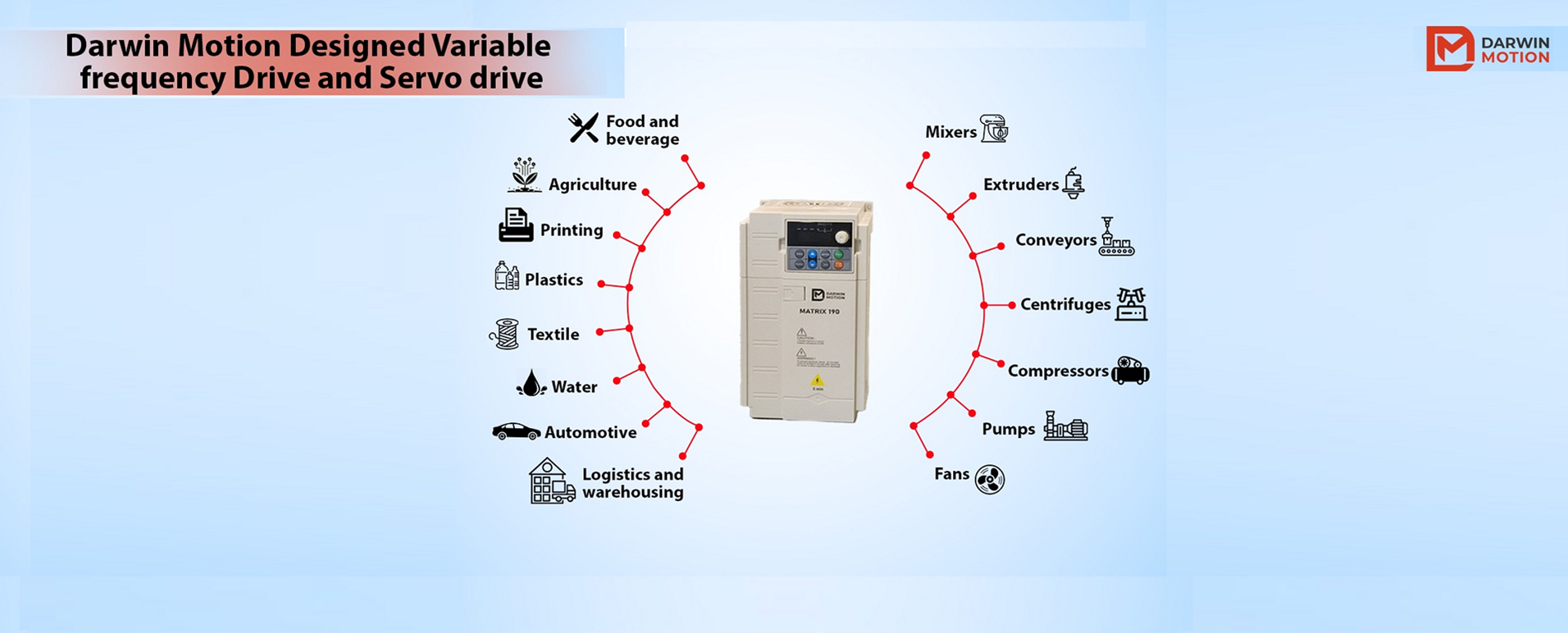Posted on 23rd Feb 2024

AC drives, also known as variable frequency drives (VFDs) or adjustable speed drives (ASDs), are critical components in modern manufacturing processes. They contribute in several ways to enhance efficiency, productivity, and overall performance. Darwin Motion ac drive dealers share some key contributions:
Energy Efficiency: AC drive allow for precise control of motor speed, which means you can match the speed of the motor to the specific requirements of the manufacturing process. By avoiding running motors at full speed when not necessary, AC drives help in reducing energy consumption and thus contribute to cost savings and environmental sustainability.
Process Control: The ability to vary the speed of motors using AC drives enables finer control over manufacturing processes. This control ensures that machinery operates at optimal speeds, resulting in improved product quality and consistency. Whether it's controlling conveyor belts, pumps, fans, or other equipment, AC drives offer flexibility in adjusting operational parameters to meet desired outcomes.
Soft Start and Stop: AC drives facilitate smooth starting and stopping of motors, eliminating sudden jolts and reducing mechanical stress on equipment. This feature extends the lifespan of machinery and reduces maintenance costs associated with wear and tear.
Load Adaptability: Manufacturing processes often involve varying loads or demands. AC drives dynamically adjust motor speed to match the changing load requirements, ensuring efficient operation across different conditions. This adaptability optimizes resource utilization and enhances overall system performance.
Reduced Mechanical Stress: Traditional methods of controlling motor speed, such as throttling valves or mechanical gears, can impose significant mechanical stress on equipment. AC drives provide a smoother and more efficient means of speed control, minimizing wear and tear on mechanical components and reducing the likelihood of breakdowns.
Diagnostic Capabilities: Many modern AC drives come equipped with diagnostic features that provide real-time monitoring of motor performance and system health. This proactive approach to maintenance allows for early detection of issues, enabling timely intervention to prevent costly downtime.
Integration with Automation Systems: AC drives can seamlessly integrate with automation and control systems, enabling centralized monitoring and control of manufacturing processes. This integration facilitates coordination between different components of the production line, leading to improved efficiency and responsiveness.
Regenerative Braking: In applications where braking is required, AC drives can employ regenerative braking techniques to convert kinetic energy back into electrical energy. This energy can be reused within the system or fed back into the grid, further enhancing energy efficiency and reducing operational costs.
Overall, Darwin Motion such as Micro Drive- Matrix 900, DR Matrix 350 / Solar Drive, High Frequency Drive - DR Matrix 500, High Performance Drive - DR Matrix 680, Regenerative VFD - DR Matrix 880 play a crucial role in modern manufacturing by providing precise control, energy efficiency, and operational flexibility, ultimately contributing to enhanced productivity and competitiveness.